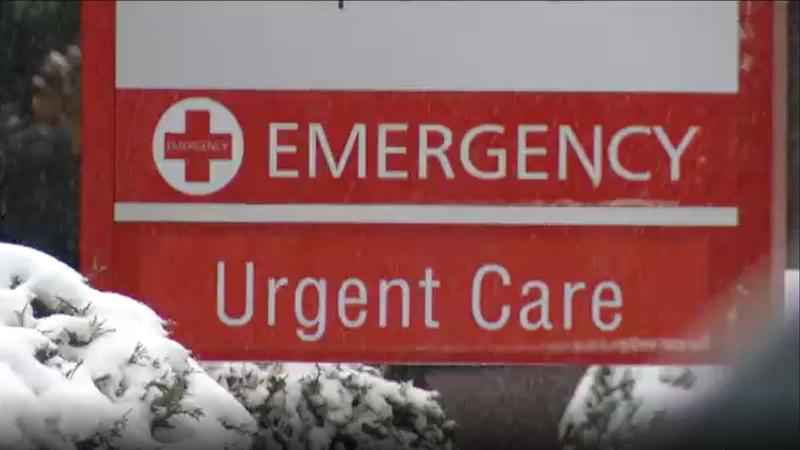Minnesota nurses plead for pandemic prudence, adequate hospital staffing levels
[anvplayer video=”5078829″ station=”998122″]
Nurses voiced exhaustion and frustration Monday, saying the current staffing levels at Minnesota hospitals are "unsafe" and "unsustainable."
"We were soldiers going into battle and I’m telling you, we’re losing the war," said Mary Turner, a COVID-19 intensive care nurse at North Memorial Health Hospital and president of the Minnesota Nurses Association.
According to the Centers for Disease Control and Prevention, every county in Minnesota is considered to be at a high level of COVID-19 transmission.
"This weekend, my ICU is full. Most of them won’t make it. They’re not making it anymore, folks," Turner said.
Less than 1% of ICU beds and non-ICU beds in the metro were available Monday, according to state data.

[KSTP]
"The COVID-19 pandemic is worse than ever. ICU beds are full and patients are back in the hallways," Turner said.
During a news conference held by the Minnesota Nurses Association Monday, six nurses pleaded with the public to make smart choices over the holidays.
"I urge people to take the ongoing pandemic seriously as we head into holiday. Case levels are at a record high," Turner said. "Get the vaccine, get the booster. For God’s sake, wear your mask and practice social distancing."
The nurses also had a message for hospital administrators.
"It is absolutely true that we are overwhelmed and it is absolutely true that we are heartbroken. It is also true that the executives making this plea to the public are the ones who have the most power to help their staff and their patients," said Emily Wright, an emergency department nurse at M Health Fairview Southdale.
Wright said administrators started making staffing cuts years ago, before the pandemic, in an effort to save money.
She said those cuts are having serious consequences.
"Skeleton staffing models regularly using the bare minimum of staff to stretch to cover each treatment area have been implemented by our senior leadership to increase profits and it puts nurses and patients in some of the most dangerous situations I have ever been witness to," Wright said.
Nurses at other hospitals across the state echoed concerns about the staffing levels.
"Now they want to cry COVID because nurses are leaving. To be clear, COVID may have exacerbated this situation but health systems leaders created it," said Kelley Anaas, an ICU nurse at Abbott Northwestern.
Anaas said the shortage of nurses has a direct impact on patient care.
"Just because we aren’t selling raffle tickets to see who gets a ventilator doesn’t mean we aren’t rationing care inside hospitals," she said. "A patient boarding in an emergency department in rural Minnesota for days waiting for a staffed ICU bed at my hospital is rationing care."
The nurses said the current issues are part of a long-term problem.
"The reality is that COVID has helped shed a light on a systemic problem related to unsafe staffing across the Twin Cities and the state," said Trisha Ochsner, who has been a nurse at Children’s Minnesota in Minneapolis for 30 years.
Wendy Wahl, a nurse at Sanford Thief River Falls added, "We will not fix this overnight. We as citizens, though, must come together and not only do our part but reflect the mirror back on the hospital CEOs and demand they do theirs."
The nurses are urging hospitals to reexamine their staffing levels and make appropriate changes immediately.
They said nurses should also be allowed to use their earned paid time off, instead of having vacation requests denied due to lack of staff, so they do not suffer burnout and lose more team members.
5 EYEWITNESS News reached out to the major hospital systems in the metro for a response to the nurses’ concerns.
Allina Health responded with this statement:
"Our care teams have been providing exceptional and compassionate care under very challenging circumstances. As the pandemic continues its relentless pace, we acknowledge the growing frustration of the nurses, physicians and other care team members who are doing everything possible to care for a sustained surge of patients. We remain focused on doing everything we can to support our care teams and the communities we serve who need us now more than ever. We have been very transparent in asking the public to step up and do their part by taking all public health measures to help alleviate the incredible strain on our health care system. This is especially important during the holidays, and in light of growing influenza infections and the omicron variant."